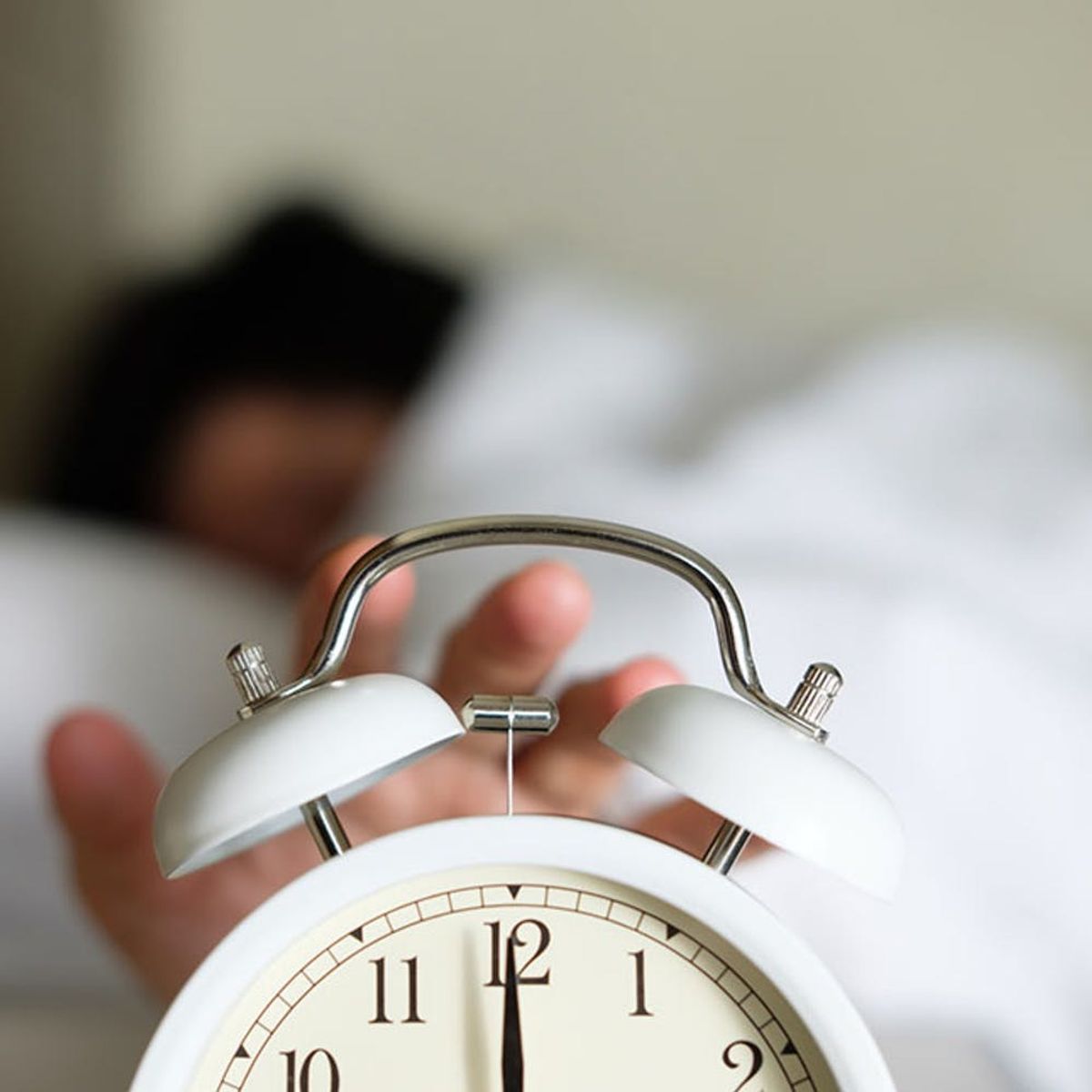You snooze, you lose.
Why Hitting the Snooze Button Could Be Making You More Tired

When I first bought a retro-looking alarm clock to match the decor in my bedroom, I adored its steampunk charm: brass finish, footed pedestal, and the quintessential on/off knob poking out of the top. The one vintage feature of the clock I hadn’t bargained on, however, was its lack of a snooze button. How could I face the mornings without the extra few morsels of sleep afforded by that magical button? Could I really expect myself to simply jump out of bed on the first beeps of the alarm?

According to science, yes — that’s exactly what I should expect. Increasingly, research shows that hitting snooze may have unfortunate consequences on our rest.
Though an extra eight, nine, or 10 minutes of sleep can feel like a godsend in the moment, it turns out that these small snatches of extra rest aren’t so restful after all. Instead, they’re merely a patchwork of what experts call “fragmented sleep.” Studies have shown that fragmented sleep offers far less restorative benefit than the “consolidated” sleep you accrue throughout the night. These dribs and drabs don’t do you much good, leading to “sleepiness-related daytime impairment.” Translation: decreased energy throughout the day that makes you feel like all the coffee in the world won’t perk you up.
Even if you’re able to get fully back to sleep after hitting snooze, you haven’t done your daytime self any favors. Sleep expert Gaby Wentworth of Rockabye Rockies explains, “If a person is overtired and hitting the snooze button, they can fall back into the first phase of sleep, a deep sleep, which is very hard to wake from. If you do wake from that phase, it can make you feel even worse than if you just woke up when you first heard the alarm!” According to researchers at Johns Hopkins University, breaking up the sleep cycle in this way negatively affects mood and messes with your body’s natural circadian rhythms.
Since snoozing wreaks this much havoc on sleep quality, what can you do to break the habit? For starters, you could purchase an alarm clock without a snooze button (like I unwittingly did with my retro version). Or there’s always the option of placing your alarm out of arm’s reach, forcing yourself to get out of bed to turn it off. Some experts recommend a more psychological approach: Take time before bed to think of one highly motivating reason to get up in the morning. A social activity the next day holds, a goal you want to reach at work, or even a tasty breakfast you know awaits you in your fridge could provide the oomph you need to kick off the covers.
Another alternative is to practice healthier sleep hygiene. If you’re among the one-third of Americans not getting enough rest, maybe it’s time to “take back the night” by giving your sleep habits some TLC. Maintaining a consistent bedtime and waking time (even on the weekends) can help keep your body in a rhythmic routine not easily broken. The simple act of getting to bed at a decent hour means you’re more likely to wake naturally when you need to — reducing the desire to snooze ad infinitum.
Finally, if you really need to set an alarm rather than wake naturally, set it for the actual time you want to get up. “Behaviorally speaking, hitting the snooze button regularly reinforces that the alarm is not for waking, but for snoozing,” says Wentworth. “In addition, if you just let your body sleep that extra 30 minutes and wake when it’s time to do so, you will get much better quality of sleep.”
Have you kicked the snooze habit? Tweet us @BritandCo!
(Photo via Getty)



















